There are a lot of online math systems to help students through one of school’s toughest subjects (if not science). Each one proclaim s they have the way to teach students while having fun, in ways that are aligned with state and national standards. How do you decide what is best for your class? Here are guidelines, culled from top education sites like Edutopia, Google Education, Educational Technology, and EdWeek that are valuable when evaluating any website:
s they have the way to teach students while having fun, in ways that are aligned with state and national standards. How do you decide what is best for your class? Here are guidelines, culled from top education sites like Edutopia, Google Education, Educational Technology, and EdWeek that are valuable when evaluating any website:
- free or small fee
- support the ‘4 C’s’–creativity, critical thinking, communication, collaboration
- offer compelling content (this is subjective; ‘compelling’ varies teacher-to-teacher and student-to-student)
- are not distracting or overwhelming in colors, music, or activity
- offer levels that become increasingly more difficult, providing differentiation for student needs
- stand the test of time–do students stay engaged even after playing it over and over
- positive parent reports
- few ads–and those that are there do not take up a significant portion of the screen
- intuitive to use with a short learning curve
- encourage independence
- easily applied to a variety of educational environments
- doesn’t collect personal information other than user credentials or data required to operate the app
- includes age-appropriate content
- fulfills intended purpose
- aligned with Blooms Taxonomy, Common Core, ISTE, or other state/national/international standards
- received awards/citations
Here’s one I think meets all these basic requirements as well as makes students want to practice their math:
Free (fee upgrade to Premium)
Prodigy is a free, adaptive math game for grades 1-7 that integrates Common Core or Ontario math into a role-playing game using a Pokemon-style wizardry theme. Students complete math questions to level up (become more powerful) and ultimately defeat Crios, Prodigy’s main antagonist.
Based on the student’s profile and an invisible diagnostic run during the preliminary tutorial, students are placed at a math level. As they play, question difficulty is increased or decreased depending upon their answers and facility with the skills. If a student struggles with a concept, following questions will backfill the necessary skills.
As the student works through the math problems, many lessons (but not all) include virtual manipulatives to help solve the problem:
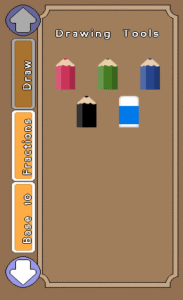 These include a speaker to say the question, a hint button to provide help, detail on the required skill, and a drawing tool to work through the answer. These encourage students to build their own problem solutions in a way that works for them rather than relying on a teacher or parent.
These include a speaker to say the question, a hint button to provide help, detail on the required skill, and a drawing tool to work through the answer. These encourage students to build their own problem solutions in a way that works for them rather than relying on a teacher or parent.
The game includes over 300 math skills, broken down by grade level. This is Grade 3:
Prodigy’s data indicates that over 1,000,000 student users and 50,000 teachers have signed up since opening its doors. Parents can register for free and track their child’s progress.
Set up is easy. You join as a parent or teacher. Once your account is established, add your class, create/review assignments, view student progress, get help, evaluate learning materials, and more.
Your students are assigned user names and passwords which they then use to log in from their digital device.
Students start with a guide called Noot who explains how to progress through the game play. From there, student play is self-managed and self-learned.
On the game screen, students see avatars of other students playing at the time. They can challenge one or play by themselves.
Pros
I like that the site offers prepared parent letters to save teacher time and get parent buy-in for this game-based math program. The letters do a great job of sharing the purpose of the Prodigy math site and explaining how parents can get involved in learning.
I like that the site reminds students NOT to use their real name when creating their avatar and why. Youngers often don’t understand the importance of online privacy.
Teachers don’t have to be experts to have students use this game (as opposed to Minecraft where it really helps if the teacher knows what’s going on).
Cons
The push for Pro features comes early in the game. It’s not onerous and easily avoided. I’m not sure I’d even notice it after extended play. Since the price is over $50 a year, I was pleased that being a premium member had no impact on the educational value of the game.
Insider tips
The website tutorials at times discuss ‘Ontario expectations’ and ‘Ontario aligned’. There’s an opportunity during set up to select your standards, such as Common Core.
Assignments can be applied to all or some students, allowing you to differentiate for needs.
Educational Applications
The teacher dashboard provides thorough reports on which students are practicing what math skill and how well they are doing.
Math skills addressed in assignments can be timed to appear exactly when those topics are covered in class and disappear when those lessons are over. Students have no overt knowledge of what those skills are because they are invisibly integrated into the gameplay. They learn math as they play and cannot progress until it is mastered. Because of this, the gameplay can be used for both formative and summative assessments.
Conclusion
I was introduced to this math game through an email from the company. Now that I’ve reviewed it, I can’t believe I hadn’t heard of it before. I’m a big believer in the gamification of education; Prodigy makes that work brilliantly for math. Here are a few comments from teachers who use it:
“The Prodigy program has been an invaluable tool to my students and me. My students are motivated to practice their math skills in a fun and interactive way both at school and at home. The greatest benefit for my students is that they are able to work on skills currently being taught in class and Prodigy automatically adapts based on their performance. The progress reports highlight individual strengths and needs. This helps with my planning and differentiation for my students.” – Ivan Dublin, SERTBrimwood Blvd. Jr. P.S.
“What I really love about the Prodigy program is the feedback that I get in terms of what the students know and where they need to improve. I also love the fact that I can see what questions were difficult and how the students answered them. I believe that students have improved their confidence in all areas of the math program. They are so excited to play and learn!” – Sue McCulloch, Grade 3/4 Northport Elementary School
If you use this game, I’d love to hear your thoughts? Is it as good as it sounds?
Jacqui Murray has been teaching K-18 technology for 30 years. She is the editor/author of over a hundred tech ed resources including a K-12 technology curriculum, K-8 keyboard curriculum, K-8 Digital Citizenship curriculum. She is an adjunct professor in tech ed, Master Teacher, webmaster for four blogs, an Amazon Vine Voice, CSTA presentation reviewer, freelance journalist on tech ed topics, contributor to NEA Today, and author of the tech thrillers, To Hunt a Sub and Twenty-four Days. You can find her resources at Structured Learning.



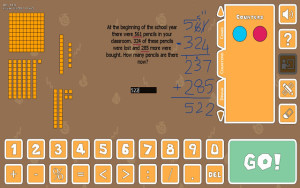
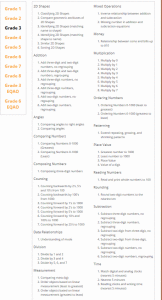
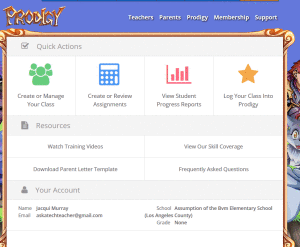
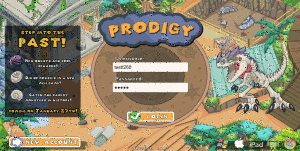
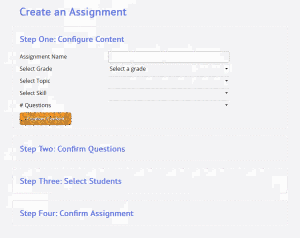
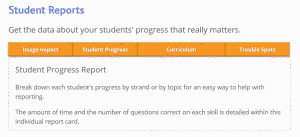





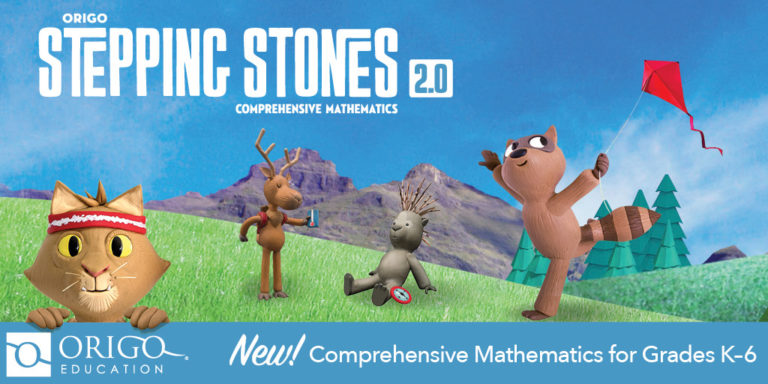
































My name is Ana Landais. My grandson was using this game but is no longer playing it. Please cancel my subscription A.S.A.P. PLEASE have accounting reach me @ 909-278-0500.
Thank you.
Hi Ana
I’m sorry but this is just a review of the site. Here’s a link to the Prodigy folks:
https://prodigygame.zendesk.com/hc/en-us
Good luck!
Great review, thanks! I’m somewhat familiar with the program because of my son, but I was mulling over the premium subscription. I also believe that there is more content to the avatars, something called an “epic”?? My son keeps talking about an epic that his friend gave him a code for…
Readers have offered a lot of suggestions, many from parents such as you. ProdigyGame is an interesting math learning tool.
I found it very play intensive and very little math study/review. You only have to complete one question to cast a spell. Did you not find that a problem?
I am sorry but i completely disagree with this review. This game is a blatant cash grab. Using the very popular “freemium” model, it sucks kids in with it’s flashy visuals and the ability to customize your avatar with clothes and accessories all the while reminding them of all the cool stuff they are missing out on by not being a “premium member”.
It incessantly reminds them after every challenge that they need to upgrade to collect their “Member Points” so they can buy cool new gear and they constantly get messages in their mailbox about new items that they could buy if they were a member.
It got so bad that we had to block the site at our school because students were telling their parents that their teacher required them to buy a premium membership (which was not true). Stay away from this game!!!
Thanks for the feedback, Garrett. A diversity of opinion is great for interested parents.
Wholeheartedly agree. Prodigy is a sleazy, school-recommended money-grab aimed at kids. The membership is $60 at the “discount” rate, for a game the kids are required to play in public school. Without it, kids miss out on over 50 exclusive items including wands, pets, hair styles, and colors. Their eggs don’t hatch as quickly, they are denied access to the Dark Tower and Firefly Forest, and they level up more slowly. Those without a membership are painfully reminded of these penalties. What a despicable scheme.
I completely agree with Garrett as well. The math problems in the game are fairly limited and you’d find them starting all over before long. Also the format is not great for some of the math skills it tries to cover. That, and the nagging to become a member everywhere.
I hat how they changed it, you used to be able to evolve pets for free, now you can’t
I am in 7th grade, and i was wondering why Prodigy is pay to win. I have member ship and toys and all that shit but my friends say the game is pay to win.(At home)
I homeschool my son (3rd grade) and he loves Prodigy. He is always asking to play the game as it is fun and engaging. He even got his brother (8th grade) hooked on the game. My opinion of the game is pretty positive. As a parent I can see the lure of all the premium ($$$) modifications. But, I discussed this with my son that our money can best be used elsewhere. As a teacher I love that math is made enjoyable, and competitive. (Many kids will rise to the challenge when given the opportunity.)
Prodigy is definitely NOT a comprehensive math curriculum and should not be used as such. It is a tool(game) to help reinforce skills that are actively being taught and review past skills. If a student is struggling it can provide additional practice in a way that is fun and entertaining.
Bonus: It doesn’t cost the teacher any money to utilize Prodigy. Their salaries are too low already. So, any additional resources available to help inspire a love of learning should be welcomed.
**One last thing… If you are so worried about spending $50-$60 on your child’s education, don’t waste money on that new $50 Xbox (or whichever devise) game they have been begging you for.
If you cancel your membership they continue taking unauthorised money from your account. Be very careful with this site
The dashboard for this game is needlessly complicated. If your child forgets their password you may as well delete the game it’s incredibly frustrating to navigate.